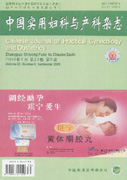Polycystic ovary syndrome is a common metabolic dysfunction and heterogeneous endocrine disorder.Epidemiological reports on the prevalence and clinical symptoms of polycystic ovary syndrome in different countries and regions are different.This paper reviews studies of epidemiological features of polycystic ovary syndrome and expound them.

